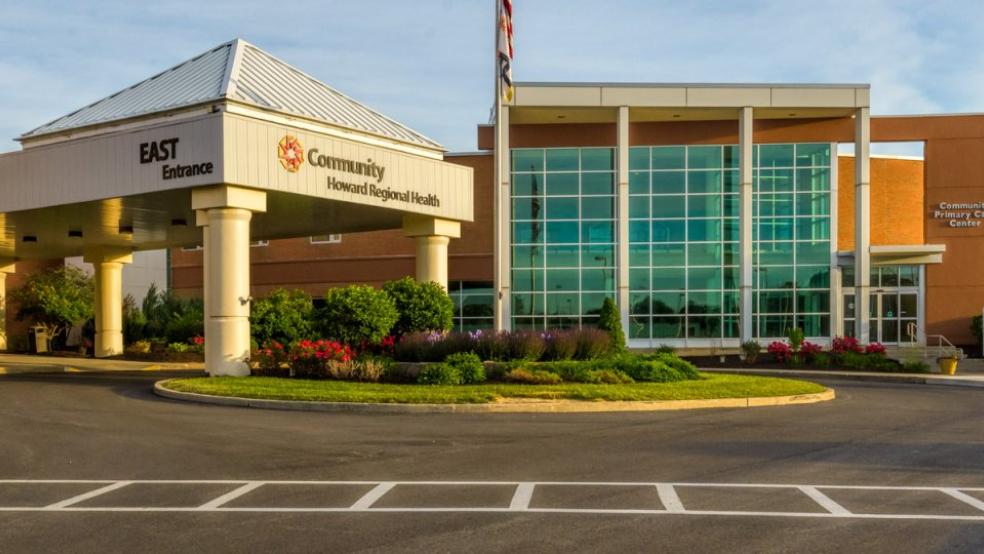Many of the rural hospitals and health centers serving 62 million Americans have operated on a shoestring for years.
Since January 2010, 80 rural hospitals and health care facilities that provided treatment to large numbers of elderly and low-income families were forced to close for financial reasons. More than 670 of the remaining 2,078 facilities are vulnerable or “at risk” of closure, according to hospital industry experts.
Related: Obamacare Repeal Is a Fiscal Minefield for the GOP
For many of those hospitals, the Affordable Care Act (ACA) was a lifeline, providing millions of their patients with the financial wherewithal to obtain health care treatment and prescription drugs without having to turn to emergency rooms for assistance.
But as the new Republican Congress and GOP President-elect Donald Trump press to repeal Obamacare in the coming months with no suitable replacement in hand, rural hospital officials say they are facing a “triple whammy” of lost financial benefits that could force many of the remaining rural hospitals out of business in the coming decade.
“We’re in the midst of a rural hospital closure crisis right now, and that is with the ACA currently in place,” Alan Morgan, the CEO of the National Rural Health Association, said in an interview Thursday. “Looking at our projections for where we’re headed, at the current rate we could see a third of all rural hospitals closed within the next decade.”
The advent of Obamacare enabled 1.7 million rural Americans to purchase subsidized private coverage on government operated exchanges last year, an 11 percent increase from 2015, according to the U.S. Department of Health and Human Services. Millions more obtained expanded Medicaid coverage for low-income adults in rural states that opted into the program under Obamacare.
Related: Republicans Are Having Second Thoughts About Scrapping Obamacare Taxes
Now the government-run health insurance exchanges and the expanded Medicaid program are on the chopping block on Capitol Hill, along with a third lesser known but highly important prescription drug discount program that is vital to the operation of more than a thousand rural hospitals.
Tucked away in the fine print of the ACA is a provision that obliges major drug companies to provide deep discounts to rural hospitals and other health care providers under the “340B” program first enacted by Congress in 1992. That law was originally designed to provide low-cost drugs to “social safety net” medical facilities operating in economically distressed regions of the country.
In drafting the 2010 Affordable Care Act, the Obama administration and congressional Democrats specifically targeted 340B to hospitals in rural areas. The ACA designated 1,100 rural hospitals eligible for 340B coverage. Those facilities subsequently extracted major discounts from pharmaceutical companies for medicine used in treating outpatients who qualified for Medicaid.
According to a report by Morning Consult, the 340B program is critical to the operation of many rural facilities because the drug cost savings can be used to fund essential medical services for their communities, such as emergency rooms, as well as sharply reducing the cost of medicine for indigent patients.
Related: GOP and Dem Governors Are Closing Ranks Against Obamacare Repeal
For example, the Cass County Memorial Hospital in Atlantic, Iowa, uses some of its 340B program savings to help fund the hospital’s Behavioral Health Unit, which is one of only two critical access hospitals in the entire state that offers psychiatric services. At the same time, the RiverView Health facility in Crookston, Minn., has used savings from drug purchases to recruit orthopedic surgeons and oncology specialists, according to the report.
Morgan, the rural health association official, said that most rural hospitals have been “just operating on a break-even margin or at a loss in certain cases,” and can’t afford to lose any income source or coverage.
“To be able to have these deep drug discounts was a great way to assure that access remained in the community,” he said. “The 340B provision doesn’t require that the savings be passed on to the community, but it’s just common practice that this form of discounting is going on.”
The loss of subsidized health insurance, expanded Medicaid for low-income people and the 340B mandate taken together would have a devastating impact on the remaining rural hospitals, Morgan warned.
“If Congress were to proceed with an outright repeal with no replacement whatsoever, and they just ended these programs altogether, that would be the triple whammy,” he said.





